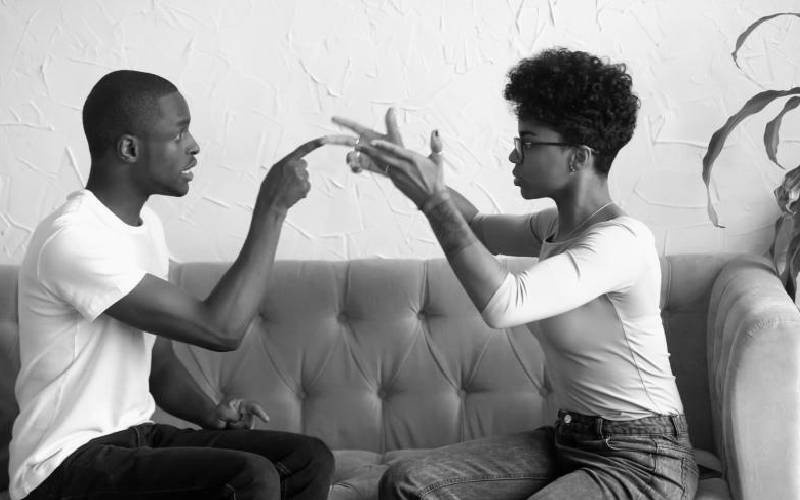NAIROBI: Growing up I remember I never used to care to know my mother tongue. Nobody ever talked to me in my mother tongue, other than went I went to upcountry shaggz as we digitals name it.
Speaking in mother tongue was unheard of and it never occurred to me that I should learn it because I never saw its importance.
Back in primary school we had a bone-monto which was a punishment for speaking Kiswahili.I never associated me being part of a tribe other than my non English names.
When children continue to develop their abilities in two or more languages throughout their primary school years, they gain a deeper understanding of language and how to use it effectively.
They have more practice in processing language, especially when they develop literacy in both, and they are able to compare and contrast the ways in which their two languages organize reality.
More than 150 research studies conducted during the past 35 years strongly support what Goethe, the German philosopher, once said: The person who knows only one language does not truly know that language. The research suggests that bilingual children may also develop more flexibility in their thinking as a result of processing information through two different languages.
Fast forward to the present I don’t know my mother tongue I already graduated from university and am working then I realize that my mother tongue is important, not important but very important as a grown up.
Everywhere I go I am haunted by not knowing my mother tongue.
It’s still a surprise to many when they speak to me and I cannot reply in my mother tongue only I the two official languages,mostly they think am pretending.
Recently I went to upcountry for our reunion, and a friend of my grandmother started asking how I was fairing on, I replied in Kiswahili I remember the shock on her face as was like, until now you have never learnt your mother tongue. I said no and was greatly embarrassed among my relatives.
That incident got me thinking how many of my friends know their mother tongue, I was shocked most know. I used to console myself that us Nairobians we are many who don’t know but I realized we are few.
Another interesting incident occurred I was buying a coat, when I heard the sellers conversing in my tribe I decided to negotiate in it.
They dismissed in a friendly way saying why are you pretending and you don’t belong to us. I told them I do and said my shaggz to confirm it.
One just exclaimed’I can never marry such a lady who doesn’t know her mother tongue,if I was to take her to my mother how would she express herself?’
From my life experience I have come to know the importance of my tribe and mother tongue more. Those who don’t are treated as outsiders because they will not take part in conversations.
Stay informed. Subscribe to our newsletter
They only observe the rest. I am referred to a Nairobian or half tribe with my friends it’s like I don’t have an origin as a name that does not signify anything.
I may be willing to be taught but as the old adage goes you can’t teach an old dog new tricks it’s so true to humans its harder to learn a new language if there is no exam at the end to the course and my career does not depend on it.
Most people take the issue lightly, I always laugh and brush it off but deep down it disturbs me because I know am missing out on something in my life and part of my culture.
I can’t blame anyone other than myself because if I really wanted I could have learnt earlier.
The lesson that you can take from my experience is parents should teach their children the importance of their culture and mother tongue, from an early age it’s not safe to assume it’s a natural step that they will learn from others.
Research has proven children who come to school with a solid foundation in their mother tongue develop stronger literacy abilities in the school language. Children's knowledge and skills transfer across languages from the mother tongue they have learned in the home to the school language.
Bilingual children perform better in school when the school effectively teaches the mother tongue and, where appropriate, develops literacy in that language.
By contrast, when children are encouraged to reject their mother tongue and, consequently, its development stagnates, their personal and conceptual foundation for learning is undermined.
From my own research most of my peers would not marry a lady from their tribe who doesnot know her mother tongue, is it fair?
 The Standard Group Plc is a
multi-media organization with investments in media platforms spanning newspaper
print operations, television, radio broadcasting, digital and online services. The
Standard Group is recognized as a leading multi-media house in Kenya with a key
influence in matters of national and international interest.
The Standard Group Plc is a
multi-media organization with investments in media platforms spanning newspaper
print operations, television, radio broadcasting, digital and online services. The
Standard Group is recognized as a leading multi-media house in Kenya with a key
influence in matters of national and international interest.
 The Standard Group Plc is a
multi-media organization with investments in media platforms spanning newspaper
print operations, television, radio broadcasting, digital and online services. The
Standard Group is recognized as a leading multi-media house in Kenya with a key
influence in matters of national and international interest.
The Standard Group Plc is a
multi-media organization with investments in media platforms spanning newspaper
print operations, television, radio broadcasting, digital and online services. The
Standard Group is recognized as a leading multi-media house in Kenya with a key
influence in matters of national and international interest.








